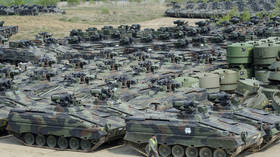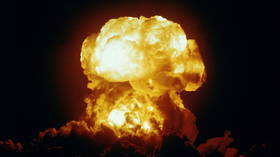Russia rules out new arms control deals with NATO

The Kremlin has formally withdrawn from a major Cold War-era arms control pact with the NATO military bloc, saying the outdated treaty was already dead for years and had completely “lost touch with reality” in the modern world.
The Russian Foreign Ministry announced the move on Tuesday, saying the Treaty on Conventional Armed Forces in Europe (CFE) had “finally become history” after prior steps to withdraw, the first of which dates back to 2007. While it originally “played a certain stabilizing role,” the deal was largely ignored by NATO members and thus has “ceased to meet the interests of Russia,” the ministry said.
“The authorities of NATO member states and client countries of this bloc have clearly demonstrated their inability to negotiate. At this stage, no agreements with them in the field of arms control are possible,” the statement added.
“Only when life forces them to return to constructive and realistic positions could appropriate dialogue be revived as part of the effort to shape a new European security system.”
Signed at the tail-end of the Cold War in 1990 and ratified two years later, the CFE was intended to limit the number of conventional arms deployed in Europe by both the NATO alliance and the former Warsaw Pact. Though a 1996 amendment relaxed some of those restrictions, by 2007, Moscow concluded that the deal was no longer effective, and accused new NATO members of violating its terms.
Russia ended its participation in the CFE mechanisms in 2015, calling them “anachronistic” and “absolutely out of sync with the present realities,” also noting that both the Warsaw Pact and the Soviet Union itself had long ceased to exist. Foreign Minister Sergey Lavrov had previously argued that “no NATO member is adhering to the treaty, and we don’t want to look like we are taking part in the theater of the absurd.”
Though the Kremlin has said Russia is unlikely to return to the Soviet-era treaty, officials have suggested that they could be open to an alternative arms control deal. However, the Foreign Ministry insisted that efforts to “ensure military security in Europe without taking into account the interests of Russia will not lead to anything good.”
“Attempts to cling to outdated agreements that do not correspond to the new situation are also doomed to failure and are fraught with the collapse of cooperation mechanisms in the field of arms control,” it added.
Kremlin spokesman Dmitry Peskov previously noted that Russia’s formal withdrawal from the CFE would not have any “direct ramifications,” saying the treaty was already a “dead mechanism.”














